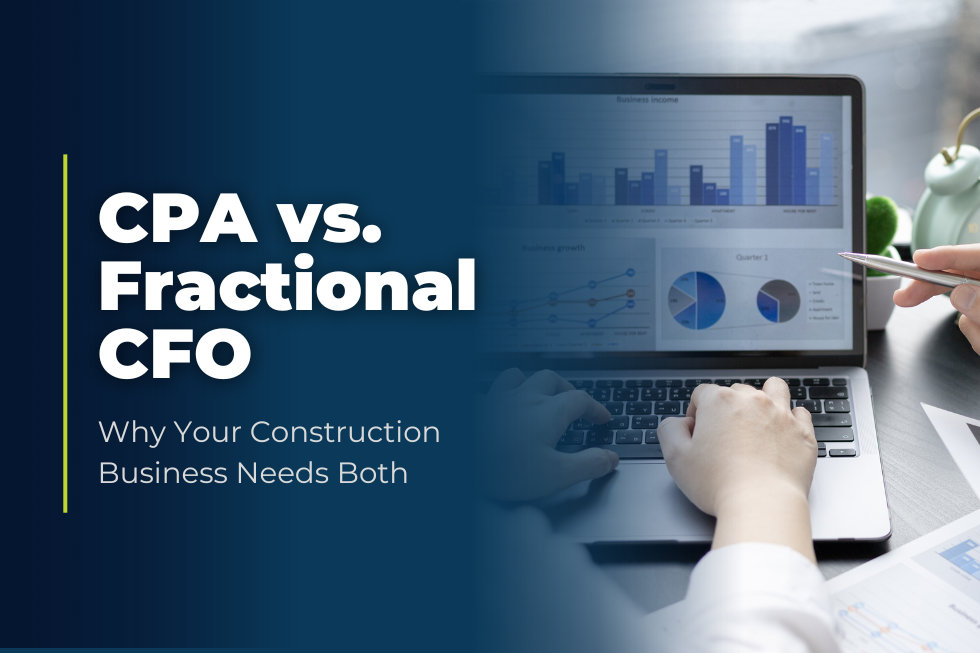Do you have the right financial people on your team?
If you have a CPA and a controller, it’s tempting to think you have finance and accounting covered. But if you want to grow your business (and who doesn’t?), you need strategic, high-level financial expertise. Most contractors making $5 million to $50 million in annual revenue don’t have that expertise on staff—and it’s limiting their growth.
Let’s look at what a certified public accountant (CPA) and a fractional chief financial officer (CFO) do—and why you need both if you want to grow.
CPA vs. fractional CFO
A CPA is an expert in accounting and tax compliance and helps your business with day-to-day accounting services like bookkeeping, tax planning, financial statement preparation, and audits in addition to maintaining accurate financial records. Their role is to ensure that your business is complying with all tax laws and regulations and legally minimizing tax liabilities.
A fractional CFO is a financial strategist who focuses on providing high-level advice and guidance to your business—for today as well as for the future. A fractional CFO develops financial plans, handles forecasting and budgeting, and identifies promising opportunities to improve financial performance and grow your business. Speaking of growth, a fractional CFO will also help to guide capital raising and financial reporting and oversee any compliance issues.
While a CPA and a fractional CFO both play a role in comprehensive financial management, a fractional CFO provides services that go beyond the scope of CPA services, including:
- Developing and implementing financial strategies. A fractional CFO will work with you to develop long-term strategies that align with your goals and objectives for your business. Then, they implement these strategies and monitoring your business’s performance to ensure effectiveness and progress toward your goals over time.
- Financial analysis and forecasting. A fractional CFO conducts detailed financial analysis and forecasting to identify trends and opportunities and reduce risks. Ultimately, the goal is to create financial clarity to help you make better decisions.
- Managing and optimizing cashflow. Cashflow can be a challenge for any business, but high upfront costs and seasonality can add difficulty for contractors. A savvy fractional CFO can help reduce the cashflow crunch by developing and implementing strategies to optimize access to working capital (while reducing risk). These can include identifying inefficiencies that might be eating into your profitability.
- Guiding financing and capital raising. Growing your business introduces new financial complexity. A fractional CFO can help to secure financing and raise capital by developing financing strategies, preparing financial statements, and conducting due diligence. They can also help to identify potential sources of funding and even negotiate terms with investors and lenders.
- Navigating growth opportunities. Know you want to grow, but not sure exactly how? This is where a fractional CFO can make all the difference for your firm, providing guidance on mergers and acquisitions, valuations, and other high-level financial decisions that can determine the future for your business.
A fractional CFO’s role is to help you make the best financial decisions for your business. Not all fractional CFOs, though, are created equal—be sure to look for one that understands the construction industry. This is where DAAXIT can help. We only work with firms in the construction industry, helping them take their businesses to the next level and attain financial freedom.









